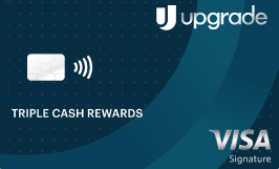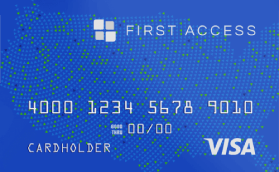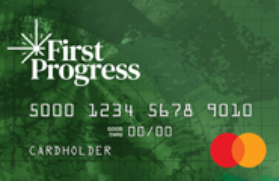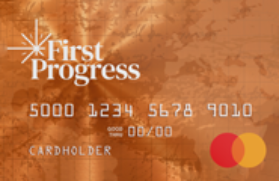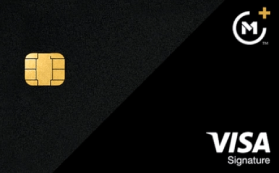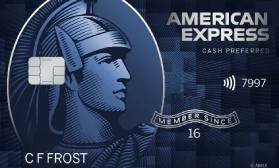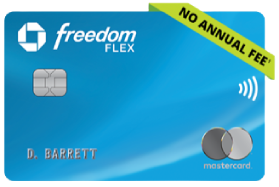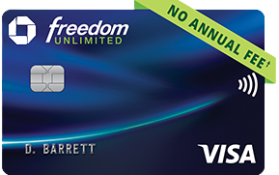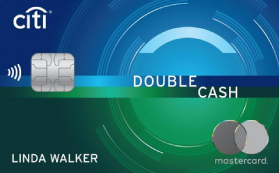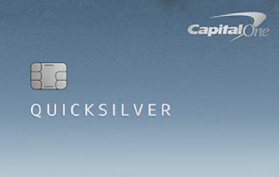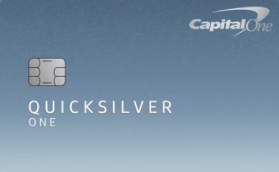Short Review of Best Credit Cards for Cash Back
| Name | Best for | Cash Back | Annual Fee | APR | Apply |
|---|
Upgrade Cash Rewards Visa® | Good credit score | 1.5% On payments. | $0 | 14.99% - 29.99% Regular | Apply now On Upgrade‘s website |
Upgrade Triple Cash Rewards Visa® | Low income | 3% On Home, Auto and Health categories.1% On everything else. | $0 | 14.99% - 29.99% Regular | Apply now On Upgrade‘s website |
| Low income | 1% On payments made to your First Access Credit Card. | $75.00 for the 1st year, $48.00 after | 35.99% | Apply now On the First Access Visa® Card secure website |
First Progress Platinum Prestige Mastercard® Secured Credit Card | | 1% On payments. | $49 | 14.24% Variable | Apply now On First Progress’s site |
First Progress Platinum Select Mastercard® Secured Credit Card | | 1% On payments made to your First Progress Secured credit card account. | $39 | 18.24% Variable | Apply now On First Progress’s site |
Celtic Bank The Owner’s Rewards Card by M1 | | 10% You’ll get up to 10% Cash Back with select brands you hold in an eligible portfolio.1.5% On everything else. | $95 | 17.99% - 27.99% Variable | Apply now On Celtic Bank‘s site |
American Express Blue Cash Preferred | Gas, Groceries, Streaming services, Daily use | 6% At U.S. Supermarkets on up to $6,000 per year in purchases (then 1%).6% On streaming (select U.S. streaming subscriptions).3% On transit. Transit includes taxis, rideshare, parking, tolls, trains, buses, and more.3% At U.S. Gas Stations.1% On other purchases. | $95 | 18.74% - 29.74% Variable | Learn more |
| Cash Back, 0 APR, No Annual Fee, Daily use | 5% On up to $1,500 on combined purchases in bonus categories each quarter you activate.5% On travel purchased through Chase Ultimate Rewards.3% On dining at restaurants, including takeout and eligible delivery services.3% On drugstore purchases.1% On all other purchases. | $0 | 18.99% - 28.49% Variable | Learn more |
| Cash Back, 0 APR, No Annual Fee, Daily use | 5% On travel purchased through Chase Ultimate Rewards.3% On dining at restaurants, including takeout and eligible delivery services.3% On drugstore purchases.1.5% On all other purchases. | $0 | 18.99% - 28.49% Variable | Learn more |
| Cash Back, No Annual Fee, Daily use | 2% On every purchase with unlimited 1% Cash Back when you buy, plus an additional 1% as you pay for purchases. | $0 | 18.24% - 28.24% Variable | Learn more |
Blue Cash Everyday® Card from American Express | Cash Back, Gas, 0 APR, No Annual Fee, Families, Shopping, Groceries | 3% On groceries at U.S. supermarkets, on up to $6,000 per year in purchases (then 1%).3% On U.S. online retail purchases on up to $6,000 per year in purchases (then 1%).2% On gas at U.S. gas stations on up to $6,000 per year in purchases (then 1%).1% On other purchases. Cash back is received in the form of Reward Dollars that can be redeemed as a statement credit. | $0 | 18.74% - 29.74% Variable | Learn more |
Capital One Quicksilver Cash Rewards Credit Card | Cash Back, No Annual Fee, Daily use | 5% On hotels and rental cars booked through Capital One Travel.1.5% On every purchase. | $0 | 19.99% - 29.99% Variable | Learn more |
Capital One QuicksilverOne Cash Rewards Credit Card | Fair credit | 1.5% On every purchase. | $39 | 29.99% Variable | Learn more |
Cards’ description
American Express Blue Cash Preferred
The Blue Cash Preferred® Credit Card is ideal for families who often shop at supermarkets because it offers a superior 6% cash back rate on food (up to $6,000 annually, then it’s 1%) and streaming services. There is also a generous 3% cash back on gas and transit. A great welcome offer is part of the deal too - $350 statement credit after $3,000 spent in the first 6 months. The $95 annual fee (after the first year) shouldn’t come as a surprise for a card with such rewards and a 0% APR intro period (on purchases for 12 months from the date of account opening, then a variable APR, 18.74% - 29.74%).
Read more about American Express Blue Cash Preferred
Chase Freedom Flex℠
The 5% cash back rate on travel purchases (made through Chase Ultimate Rewards®) is the highlight of this credit card. Then, there are the quarterly rotating categories in which you earn a 5% cash back on eligible purchases, 5% cash back on travel, 3% cash back on dining and drugstore purchases, and 1% cash back on all other purchases. All this makes for an excellent no-annual-fee card, even before adding in the $200 sign-up bonus (after you spend $500 on purchases in the first 3 months) and the 0% APR intro period for the first 15 months (18.99% - 28.49% variable after that).
Read more about Chase Freedom Flex℠
Chase Freedom Unlimited®
This card is the sister card of the Chase Freedom Flex℠, it also offers 5% cash back on travel purchased through Chase, 3% on dining and drugstore purchases, but it has a higher rate of 1.5% for all other purchases. However, this one lacks the rotating bonus categories. It also goes without an annual fee and with a $200 bonus for new cardholders (after you spend $500 on purchases in the first 3 months).
Read more about Chase Freedom Unlimited®
Citi Double Cash
The Citi Double Cash is the most straightforward credit card with an unrivaled flat cash back rate. It earns you 1% cash back when you make a purchase and an extra 1% when you pay for it. As simple as it gets for a card without an annual fee. Nothing’s perfect so it lacks some standard rewards credit card benefits, but it does have an intro 0% APR on balance transfers for 18 months (18.24% - 28.24% variable after).
Read more about Citi Double Cash
Blue Cash Everyday® Card from American Express
The Blue Cash Everyday® Card has great rewards in popular spending categories and no annual fee. It earns you 3% cash back at U.S. supermarkets (up to the first $6,000 in a year) and 2% at U.S. gas stations and some department stores. New cardholders can also earn themselves a $200 bonus, by spending $2,000 in the first six months. You will receive the $200 back in the form of a statement credit.
Read more about Blue Cash Everyday® Card from American Express
Capital One Quicksilver Cash Rewards Credit Card
The Capital One Quicksilver Cash Rewards makes for an effortless card with a great flat rate that doesn’t charge an annual fee. It earns you an unlimited 1.5% cash back on every purchase, plus you can get a $200 bonus by spending only $500 on purchases within 3 months from account opening.
Read more about Capital One Quicksilver Cash Rewards Credit Card
Capital One QuicksilverOne Cash Rewards Credit Card
Cardholders will get the same features as those who have the Capital One Quicksilver Cash Rewards, a 1.5% cash back on all purchases for no annual fee. However, this one doesn’t have the $200 sign-up bonus.
Read more about Capital One QuicksilverOne Cash Rewards Credit Card
What are cash back credit cards and how do they work?
Cash back credit cards are a type of rewards cards (the other two types being points and travel). When you pay for your purchases with your cash back credit card, you get a rebate of the purchase amount as moneyback. Cash back is usually expressed in percentages.

For example, take the Capital One QuicksilverOneCredit Card that offers a fixed 1.5% cash back rate on all purchases. If you buy an item for $100, you’ll get $1.5 back.
The biggest advantage of cash back credit cards is their flexibility. It’s up to you to decide what you’ll spend that cash on. You also have a number of redemption options to choose from, the most common one being statement credit. The cash back earned is applied toward your account and reduces your credit card debt. Other options are a direct deposit to a linked checking account or you can request a check.
This type of credit cards sometimes has certain limitations or capped amounts when earning and redeeming rewards.

With the Chase Freedom Flex℠Credit Card the 5% rewards rate in the quarterly rotating bonus categories is applied on the first $1,500 spent each quarter on combined bonus purchases. The Citi Double Cash Card earns you great cash back, but you have to pay at least the minimum due on time. Also, there is a minimum redemption amount of $25 when you’re redeeming for check or a statement credit.
Finally, some credit cards have annual fees and it’s usually the ones with the best rewards rates. The Blue Cash Preferred® from American Express® has an annual fee of $95$, but offers an unmatched 6% rewards rate on grocery purchase and streaming services subscriptions. It’s on you to determine whether the card’s annual fee will be worth it.
How to compare and choose a cash-back credit card?
Choosing the best credit card for your goals and needs is not an easy thing. It also can take a lot of time as there is a wide variety of options on the market and they all claim to be the best. We’ll help you with a few tips on how to make a comparison between different cash back credit cards and to find the one that fits your lifestyle best.
First, consider your credit score. Cash back credit cards usually require a fair to excellent credit score to get approved. The higher your credit score, the more credit cards you can choose from. Those with the highest rewards rates, like the Citi Double Cash, require a credit score of at least 740. Still, there are some great cards people with fair to good credit have a chance at, like Capital One QuicksilverOne (580+), or Chase Freedom Unlimited® (670+). Some, like the Discover it® Secured, earn rewards for people with bad credit.
After you narrow your options a bit, you can continue with the system of elimination method. Of course, you should start with the rewards program and its rates. Ask yourself what you spend most of your earnings on and then review your spending. If you’re a young adult who drives to work and goes often on dates, the Wells Fargo Propel American Express® is one to consider as it will earn you 3 points for every dollar spent on gas and dining out. If tracking quarterly categories is not a problem for you, the Discover it® Cash Back with its 5% cash back in rotating categories will give you a great value.
In case you’re a simplicity lover and prefer low-maintenance cards, you should go for one that offers a flat cash back rate and doesn’t require you to track categories. Great choices are the Citi Double Cash and the American Express® Cash Magnet®. The first one offers a 2% cash back which is higher than the 1.5% of the American Express® Cash Magnet®, though it lacks the $200 welcome bonus (after you spend $2,000 in purchases on your new Card within the first 6 months). That leads us to another thing to consider, the sign-up bonus. Many cards have a one-time initial offer for new cardholders that enables them to earn a bonus by spending a certain amount of money, usually in the first few months of account opening. Consider also the amount you need to spend in order to earn it, not only the bonus amount.

With the Capital One® Savor Cash Rewards, you can earn $300 if you spend $3,000 in the first three months. While with the Capital One® Quicksilver you only need to spend $500 to get the $200 bonus.
Another very important thing to take into account is the annual fee. There are a lot of great cash back credit cards that don’t charge an annual fee, like the Blue Cash Everyday® from American Express® or the Wells Fargo Propel American Express®. These are a great option for low spenders who are not sure whether they’ll earn enough rewards to justify the cost of an annual fee.
At last, you should consider other perks and features that might work to your benefit. If you have a big purchase coming up a card with a 0% APR intro period will work great for you. The Bank of America Cash Rewards offers an intro APR period for 15 billing cycles on both purchases and balance transfers (18.24% - 28.24% Variable after that). So, you can also use it to pay off debt on another credit card, if you do the balance transfers within 60 days after account opening. Then, if you plan on using your credit card for international travel look out for foreign transaction fees and maybe opt for a card that’s Visa® or Mastercard® rather than American Express, which is widely accepted nationwide, but not worldwide.
Types of cash-back credit cards
Generally, there are three types of cash-back credit cards:
- Flat-rate cash back credit cards are the simplest type, you get a single rewards rate for all purchases. They’re suitable for those whose spending is evenly spread across several categories. Great flat-rate cards are the Citi Double Cash and the Capital One Quicksilver.
- Tiered cards offer higher rewards rates for purchases in certain bonus categories. Fine choices within this type are the Capital One® Savor Cash Rewards which offers 4% cash back on dining and entertainment, and the Blue Cash Preferred® from American Express® which earns an outstanding 6% cash back on grocery stores and streaming services, and a 3% cash back on gas and transit.
- Rotating bonus categories is very similar to tiered categories, except that here the bonus categories change quarterly. Each quarter you earn the tiered cash back rate on purchases in different categories. The Discover it® Cash Back and the Discover it® Student Cash Back both offer 5% cash back in rotating categories (on up to $1,500 in spending per quarter when you activate and 1% back on everything else). Some cards, like the Bank of America Cash Rewards, let you choose the bonus category.
Common cash-back bonus categories
The most common cash back bonus categories are the following:
- Groceries – probably the most useful category because who doesn’t spend on groceries? Even those who don’t often prepare their food at home, still shop for groceries (milk, coffee, snacks). The best reward rate for this category is the 6% cash back offered by the Blue Cash Preferred® from American Express®. Check our top picks for credit cards for groceries to know more about them.
- Gas – another great category, as many Americans spend a considerable amount of money on gas. The Wells Fargo Propel American Express® offers great rewards for this category with three points per dollar spent on gas purchases. Check our top picks for credit cards for gas to know more about them.
- Dining – everyone who likes dining out at restaurants should opt for a card that has a high rewards rate for this category, like the Capital One Savor Cash Rewards (4% on dining). Check our top picks for credit cards for dining and restaurants to know more about them.
Other popular categories include travel, transit, entertainment, subscriptions to streaming services, food delivery, etc.
Cash back vs. travel cards
When deciding between a cash back or a travel credit card, it all comes down to your lifestyle. If you travel regularly, it will make sense to get a travel card, as it will be far more worth it, since they usually offer higher value per dollar spent. You’ll have to do a research and compare several redemption options to find the one that offers the most value. On the other hand, cash back cards are more straightforward and flexible. Also, with travel cards, you’ll mostly find perks like travel insurance or concierge service. Cash back credit cards usually lack those, but they have interest rate free periods on purchases and balance transfers.
Both types have their benefits and drawbacks, but you can’t have it all. Unless, of course, you take both, a travel card and a cash back card.
Cash back credit cards that require a membership
In order to apply for some cash back credit cards, you’ll need to have a certain membership. These are usually store credit cards like the Costco Anywhere Visa® Card by Citi (4% on gas, 3% on restaurants, and 2% at Costco) or the Sam’s Club® Mastercard® (5% on gas and 3% on restaurants). Both don’t have an annual fee but require a membership at the respective stores. You can earn rewards everywhere with them, but you have to redeem that at the corresponding stores, Costco and Sam’s Club.
Which Credit Card Gives The Most Cash Back?
The credit card that will give you the highest returns in cash back is the one that fits your personal spending habits the best. If you’ve heard a colleague talking about how the Capital One® Savor Cash Rewards credit card is great, it doesn’t mean it will be great for you too. It may be for someone who often dines out and spends free time at events, but if you prefer cooking at home and watching Netflix instead, the Blue Cash Preferred® will be a better fit as it offers higher rewards rates on groceries and streaming services.
So, our advice is to look at your receipts and statements to see what you spend the most on and then take a credit card that has higher rewards rates in those categories.
Pros and cons of using a cash back card
Go over this pros and cons list to better understand cash back credit cards.
Pros
- Simple and flexible cash back rewards – whether you own a simple, flat-rate credit card or a tiered one with bonus categories, the cash back is the highlight of these credit cards. You can take a card that has high rewards rates in the categories you usually spend a lot and you’ll earn cash back effortlessly, without having to make any changes in your spending.
- Sign-up bonuses – most cash back credit cards have a promotional offer for new cardholders which gives them the opportunity to earn a cash back bonus with the condition they spend a certain amount in the first few months.
- Intro APR periods – you can use the 0% APR periods to go through with a large purchase or pay off another credit card’s debt.
- No annual fee – if you have read our credit card descriptions you must’ve noticed that many of them have no annual fees, but still offer great rewards.
Cons
- High ongoing APRs – after the intro period most cash back cards have high APRs and you have to be careful not to carry a balance because the cost can offset your rewards fast.
- Less value and no travel benefits – compared to travel rewards cards, cash back offers less value per dollar spent. With travel rewards you can really max your points by, for example, purchasing through a loyalty program that values them more highly.
- Spending restrictions in rewards categories – some cards allow you to earn high cash back rates only on a limited amount spent. The Blue Cash Preferred® earns you 6% on groceries for the first $6,000 annually, after that it’s 1%.
Making the most of your cash back card
To make the most out of your cash back credit card you should use it for all your purchases. If you can, get more than one card and use them strategically to maximize your rewards. Pay for your travel with the Chase Freedom (Flex or Unlimited), at restaurants use the Capital One® Savor Cash Rewards, and don’t go for grocery shopping without the Blue Cash Preferred® from American Express®.
Of course, don’t forget to seize the welcome bonus, if there is one.
Does Cash Back Expire?
More often than not, you’ll find that the rewards don’t expire as long as the account remains open. While some credit cards do have rewards that expire and they can have a particular deadline until which you have to use them or they’ll expire after a certain period of card inactivity. For example, your rewards with the Citi Double Cash will expire only if you haven’t earned any cash back on purchases in the last 12 months.
Are cash back credit cards worth it?
This is not a yes/no question. We cannot tell for sure whether a certain cash back credit card will be worth it without details on your financial goals and needs. What we can recommend is that you don’t carry a balance on these credit cards. The ongoing APRs are usually high and even if you earn a great return in cash back, it can end up being very costly.
Before deciding on a card with an annual fee, analyze whether all the benefits the card offers offset the annual fee, consider cash back rewards, bonuses, and other perks. The Capital One® Savor Cash Rewards has a $95 annual fee which you can justify by spending $2,375 in the dining and entertainment categories.
FAQ
What are other credit cards to consider?
Some great cards that didn’t make our list are Citi Costco Anywhere Visa® and Chase Ink Business Cash®.
What credit score do I need to apply for a cash back credit card?
Generally, cash back credit cards require a fair to excellent credit score, with those requiring the highest credit scores also offering the best rewards. However, there are also options for people with bad credit.
Is it bad to redeem cash back?
It’s actually smart to redeem your cash back as soon as you can, because otherwise, it will lose value from year to year, due to inflation.




